With market shifts, changing technologies, and increased consumer expectations, what does SEO for insurance companies look like today? To ensure your agency appears prominently in search results, you need a solid SEO strategy that lets you achieve visibility and click-throughs. To help you hone your SEO for insurance company success and get in front of your customer base, we’ve created this guide to the latest trends and best practices in SEO tailored for insurance companies.
Table of Contents
What Is SEO in Insurance?
There was a time when many people would stick with one insurance carrier, only touching base occasionally to update coverage or report a claim. Today, however, more and more consumers are shopping around for insurance, turning to search engines and other digital means to find the best insurance at affordable rates.
With information, reviews, and quotes readily available at their fingertips, it’s easier than ever to switch to another insurance provider. That ready access offers the opportunity to connect with your target audience at the precise moment they’re looking for insurance.
In the insurance industry, the intention behind many searches is to secure an insurance policy after researching different providers, reading reviews, and gathering quotes.
In recent times, consumers have been feeling the pinch from rising insurance premiums, along with inflation, elevated costs of living, and other economic factors. The cost of auto insurance alone has climbed over 20% in the past year. Homeowners insurance costs are also on the rise, with Florida leading the way as the most expensive state for home insurance.
It’s no wonder more people are shopping for deals. However, there’s a silver lining even if your current customers are looking to jump ship. The higher you appear in search engines, the more credible and trustworthy you appear to current and prospective customers.
In other words, now is the perfect time to ramp up your SEO, optimizing your high-quality content to rank higher for relevant search queries and attract more potential customers. While your competitors perhaps pull back on marketing investments, you have an opportunity to pull ahead of them in search rankings and gain a competitive edge.
Current Trends in SEO for Insurance Company Professionals
Understanding the trends can help you keep pace with the times and evolve to meet shifting consumer demands and preferences. Here’s a look at the top SEO trends impacting insurance companies.
User Intent and Experience
Search engines are increasingly prioritizing user intent and experience. You need to understand what your potential clients are looking for and ensure your content meets their needs. High-quality, relevant content that answers users’ queries is more likely to rank well.
Search Preferences
It’s a sign of the times that many people prefer to search for information on social media or via artificial intelligence (AI) chatbots. However, the vast majority (86%) still think search engines are the best way to find reliable answers to questions. So, no, SEO is not dead; it’s very much alive. And you have to make sure you’re reaching the people searching for insurance agencies like yours.
Mobile Searches
More than half of consumers use their phones to conduct searches. As such, Google has shifted to mobile-first indexing, meaning your website must be mobile-friendly to rank well. Ensure your site is responsive, loads quickly, and provides a seamless user experience on mobile devices.
Local SEO Optimization
Local SEO has become more important than ever, especially for insurance agencies targeting specific geographic areas. Optimizing your Google Business Profile, obtaining local citations, and encouraging customer reviews can boost your local search visibility.
Voice Search Optimization
The rise of voice-activated assistants like Siri and Alexa has led to an increase in voice searches. Optimizing for voice search involves using natural language, focusing on long-tail keywords, and ensuring your content answers specific questions that users might ask verbally.
Featured Snippets and Zero-Click Searches
Featured snippets and zero-click searches are becoming more common. These search results provide direct answers to queries at the top of the search engine results page (SERP), often without the need for the user to click through to a website. Structuring your content to answer common questions clearly and concisely can help you capture these valuable snippets.
SEO for Insurance Companies: Key Best Practices
Now that you know more about the current SEO trends, it’s time to put that knowledge to work and implement best practices to optimize your insurance company’s online presence.
Conduct Comprehensive Keyword Research
Understanding what your potential clients are searching for is the first step in SEO. Use tools like Google Keyword Planner, SEMrush, and Ahrefs to identify high-value keywords relevant to your services. Focus on long-tail keywords that reflect user intent, such as “best home insurance rates in [city]” or “affordable car insurance for young drivers.”
Optimize On-Page SEO Elements
Ensure that each page of your website is optimized for search engines, including:
- Title tags and meta descriptions: Craft compelling, keyword-rich titles and descriptions that accurately reflect the content of the page.
- Headers (H1, H2, H3): Use headers to structure your content and incorporate keywords naturally.
- Internal linking: Link to other relevant pages on your site to improve navigation and distribute link equity.
Leverage Local SEO Strategies
Enhance your local SEO with:
- Google Business: Claim and optimize your Google Business listing. Ensure your name, address, and phone number (NAP) information is consistent across all platforms.
- Local citations: Get listed in local directories, and ensure your information is accurate and up-to-date.
- Customer reviews: Encourage satisfied clients to leave positive reviews, which can boost your local rankings and build trust with potential clients.
Build a Strong Backlink Profile
Backlinks from authoritative websites signal to search engines that your site is trustworthy and relevant. Develop a strategy to acquire high-quality backlinks with:
- Guest blogging: Write articles for reputable industry blogs, and include links back to your site.
- Partnerships: Collaborate with other businesses or industry organizations to earn backlinks.
- Content promotion: Share your content on social media and other platforms to increase its visibility and attract backlinks.
Create Engaging and Informative Content
Content is still king in SEO. Regularly publish high-quality content that addresses the needs and interests of your target audience, including:
- Blog posts: Write informative articles about insurance topics that are relevant to your audience.
- FAQ: Create a comprehensive FAQ section that answers common questions about your services.
- Case studies: Showcase success stories and detailed case studies to build credibility and trust.
Monitor and Adjust Your SEO Strategy
SEO is not a one-time effort but an ongoing process. Use tools like Google Analytics and Search Console to monitor your website’s performance. Track key metrics such as organic traffic, bounce rates, and conversion rates. Regularly review and adjust your SEO strategy based on these insights to ensure continued improvement.
Implement SEO for Insurance Company Success
Optimizing your insurance company’s online presence through SEO best practices is essential for staying competitive in today’s market. By understanding and implementing these best practices, you can enhance your visibility, attract targeted traffic, and convert prospects into loyal clients.
Neilson Marketing Services specializes in tailored SEO solutions designed to elevate your insurance agency’s digital presence. Contact us today to ask about our many success stories and discover how our expertise can help you achieve your business goals.
FAQ
What role does SEO play in the insurance industry today?
SEO helps insurance agencies improve online visibility, attract potential clients, and generate leads by ranking higher in search engine results for relevant queries.
Why is keyword research crucial for insurance SEO?
Keyword research identifies the search terms potential clients use, enabling agencies to optimize their content with relevant keywords and attract targeted traffic.
How can insurance companies benefit from local SEO strategies?
Local SEO enhances visibility among clients in specific geographic areas, increasing trust and relevance in local search results and driving qualified leads.
Why are backlinks important for insurance SEO?
Backlinks from authoritative sites validate an insurance agency’s credibility, improve search engine rankings, and attract high-quality traffic.
What types of content should insurance agencies prioritize for SEO?
Insurance agencies should focus on creating informative and engaging content such as blogs, FAQs, and case studies that address client needs and industry trends.
How can Neilson Marketing Services assist with SEO for insurance companies?
Neilson Marketing Services offers tailored SEO solutions designed to optimize your digital presence, increase online visibility, and drive meaningful engagement with potential clients.
